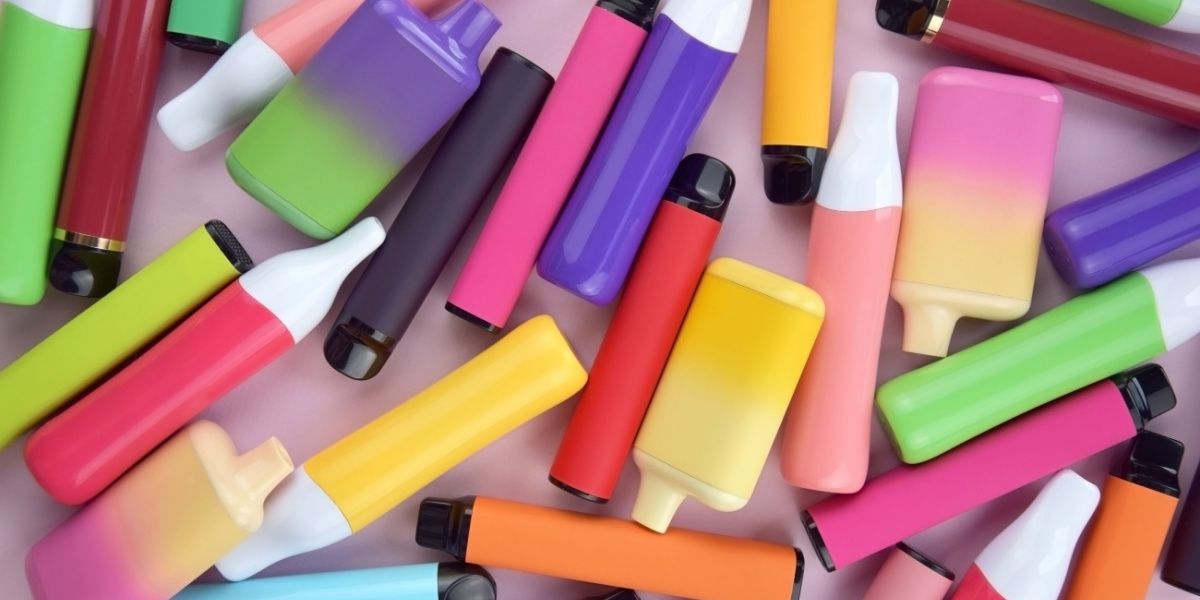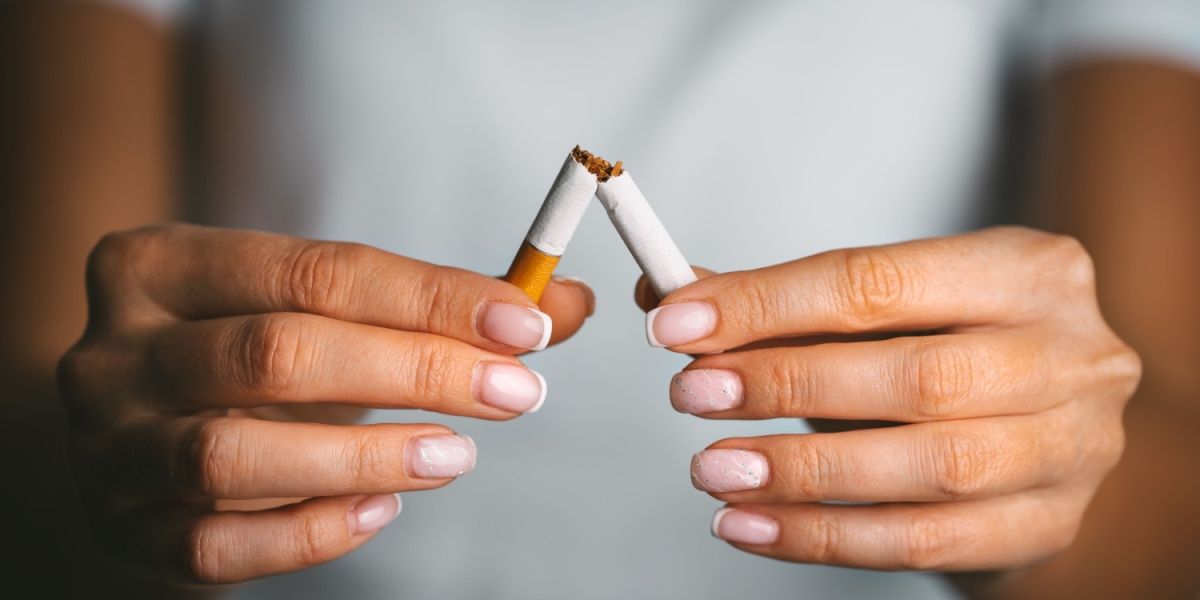Quitting vaping can be challenging, but it’s one of the best decisions for your health and well-being. Vaping is often marketed as a safer alternative to smoking, which has led many people, especially young adults, to pick up the habit.
However, evidence shows that vaping isn’t risk-free: it still delivers nicotine (a highly addictive substance) and can impact your heart and lungs. [1] Health experts are, in fact, increasingly concerned and emphasize the urgent need to help people, particularly younger vapers, quit e-cigarettes for good. [2]
The good news is that once you quit vaping, your body begins to heal, and positive changes start almost right away. Let’s explore the benefits you can look forward to and some challenges you might face when giving up vaping.

What happens when you quit vaping
Quitting vaping triggers positive changes in your body and mind almost immediately. Within the first days of being vape-free, you might notice easier breathing and a sharper sense of taste and smell as your lungs and senses begin to recover. As nicotine clears your system, some early withdrawal symptoms like irritability or cravings may appear, but these usually peak within the first week and then start to fade. [3]
After a few weeks, your lung function improves as your airways heal and you cough less, thanks to the removal of irritating chemicals found in e-cigarette vapor. [3]
Lived experience shared in online recovery spaces like Reddit offers valuable insight into the quitting process. Many former vapers note that by the one- to three-month mark, they begin to feel mentally clearer, more focused, and more energized. [4]
Over the next months, your stamina increases, and you’ll likely notice fewer headaches and an overall better sense of well-being as your body adapts to life without vaping.
Your body after vaping: What to expect with recovery over time
| Time elapsed | Less than 1 week | First week (7 days) | Weeks 2 to 4 | 1 to 3 months | More than 3 months |
|---|---|---|---|---|---|
| Effects or changes |
|
|
|
|
|
Benefits of quitting vaping
Quitting vaping brings a wide range of benefits that affect nearly every part of your body and mind. From stronger lungs to clearer skin and better emotional balance, the improvements can start within days and build over time. Below are some of the key physical, mental, and cosmetic health benefits you may experience after you stop vaping.
Physical health benefits: Stronger body, better breathing
Quitting vaping protects your oral health by reducing harmful disruptions to your mouth’s microbiome. Research shows vaping can alter oral bacteria similarly to traditional smoking, negatively impacting gum health and oral tissues. Stopping vaping helps your oral microbiome recover, lowering risks for periodontal issues.
Your lungs begin to heal quickly after you quit vaping. As mentioned, within the first few days, you can notice improvements in your breathing as airflow in your small airways starts getting better. [3] Over the next several weeks to months, the inflammation and mucus buildup in your airways decrease, making it easier to breathe comfortably and deeply. [6] By stopping vaping, you're no longer inhaling irritating aerosol particles, which significantly reduces your long-term risk of respiratory diseases in the long run. [3][5]
Additionally, your cardiovascular health gets a boost. Nicotine and chemicals in e-cigarettes can harm the inner lining of blood vessels and reduce nitric oxide levels, leading to poorer blood flow. [6]
When you stop vaping, your blood circulation gradually improves as your endothelial function recovers, reducing the strain on your heart and lowering the chance of heart-related problems down the line. [3] Quitting vaping lets your body repair itself.
Mental and emotional benefits: Clearer mind, calmer mood
Nicotine from vaping affects the brain’s reward system, and over time, it can significantly contribute to anxiety and mood swings. Many people find that after quitting, their mood stabilizes and they feel less anxious or irritable once the withdrawal period passes. [7]
Research has shown that a high proportion of young vape users report anxiety or depression symptoms — about 60% in one survey of teen and young adult vapers. [8] By quitting, you remove a potential trigger of these mood issues and can develop healthier coping strategies for stress.
You might also experience improved focus and better sleep patterns as your body adjusts to the absence of constant nicotine hits. One study found ex-smokers had fewer thinking problems than current smokers, suggesting that quitting helps clear mental fog. [9]
Breaking free from the cycle of nicotine cravings often brings a sense of empowerment and reduced stress, knowing you’re no longer dependent on vaping to feel “normal.”
Skin health and appearance: Glow up & skin improvements
Nicotine in vape products narrows blood vessels, which means less oxygen and nutrients reach your skin. This often causes dryness and can slow down skin healing. [10] After you quit, improved blood flow helps your skin receive more nutrients and hydration, leading to a clearer and more hydrated complexion.
Over time, you may notice that cuts or blemishes heal faster than before. Vaping (like smoking) also exposes your skin to toxins that break down collagen and elastin, the proteins that keep skin firm and youthful. [11][12]
By stopping vaping, you reduce this exposure, which can help slow the premature aging of the skin. Many former vapers report fewer breakouts and a healthier glow as their skin recovers its natural balance.
Common challenges when quitting & what to expect
Quitting vaping can be challenging, especially in the beginning, but knowing what to expect helps you prepare. Nicotine withdrawal is the first hurdle. You might experience the following symptoms during the first week or two: [13]
- Irritability/anger/frustration
- Depressed mood
- Difficulty concentrating
- Increased appetite
- Insomnia
- Restlessness
These symptoms, while certainly uncomfortable, are a normal sign that your body is adjusting to the lack of nicotine. They tend to peak within a few days and then gradually ease over the next couple of weeks.
It’s also common to feel increased stress or anxiety at first, since many people used vaping as a coping mechanism. In one study, 41.9% of young adult vapers cited stress and anxiety as major challenges when trying to quit. [14]
Online communities of former vapers resonate with these struggles, often mentioning physical symptoms like fatigue and coughing as well as psychological symptoms like anxiety. [15] The good news is that these effects are temporary. By the second or third week, withdrawal discomfort usually fades significantly, and each vape-free day gets easier.
Preparing your first steps toward a vape-free life
To overcome these early challenges, it helps to have a plan and support: [15]
- Stay hydrated and keep healthy snacks handy to combat cravings.
- Distraction can help: when an urge to vape hits, take a brisk walk or do something enjoyable until it passes.
- Nicotine replacement products like gum or patches can also help take the edge off intense cravings for some people.
- Lean on friends, family, or support groups (even online forums) for encouragement and accountability.
Knowing you are supported can make a big difference. Remind yourself that these discomforts are temporary and focus on the positive changes you’re already feeling. Each day without vaping is a victory for your health. With time, staying vape-free becomes easier, and soon the benefits far outweigh the challenges of quitting.




